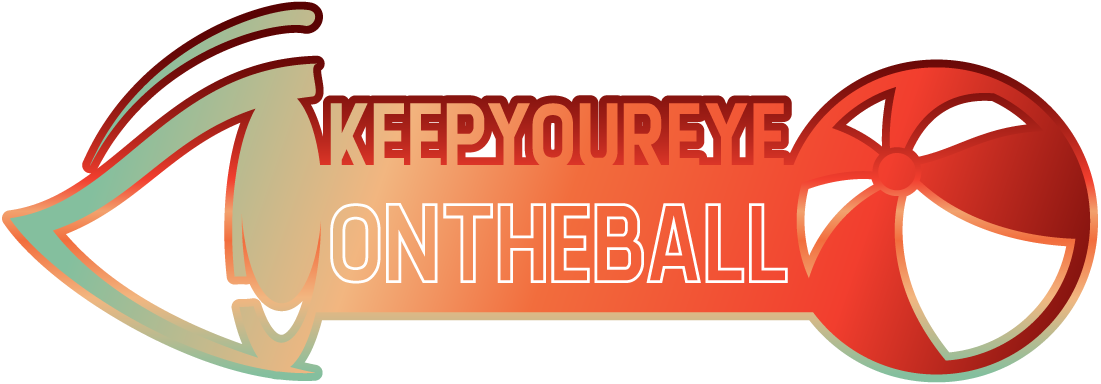Unlock the secrets to taking your athletic performance to the next level with effective sports strategies and techniques. Whether you’re a seasoned athlete or just starting out, understanding the importance of proper training, nutrition, and mental preparation is crucial for achieving success in your chosen sport. From improving technique and building stronger athletes to fueling your body for optimal performance and overcoming obstacles, we’ll delve into the essential elements of creating a comprehensive sports improvement plan. By combining cutting-edge training methods, personalized fitness plans, and expert advice, you’ll be equipped with the knowledge and tools necessary to enhance your athletic performance and achieve your goals.
Discover how to harness the power of sports improvement strategies and techniques to unlock your full potential, overcome challenges, and reach new heights in your athletic pursuits. With a focus on evidence-based approaches and expert guidance, this article will provide you with the insights and expertise needed to optimize your performance, stay motivated, and achieve long-term success in your sport.
Improving Technique in Sports
To excel in sports, mastering various techniques is crucial. Here are some effective ways to enhance your skills:
- Analyzing Your Performance: Identify areas where you need improvement by tracking your progress over time. Break down each aspect of your game into smaller components, such as speed, agility, strength, and endurance. Analyze your strengths and weaknesses using video recordings, statistics, or self-assessments.
- Developing a Training Plan: Create a structured training program tailored to your goals and needs. Set realistic objectives, allocate sufficient time for practice, and incorporate rest days to avoid burnout. A well-planned training schedule helps you stay focused and motivated.
- Practicing Drills and Exercises: Incorporate drills and exercises that target specific techniques, such as shooting, passing, or serving. These repetitive movements help solidify muscle memory and improve overall proficiency. Gradually increase difficulty levels as you become more comfortable with the techniques.
- Seeking Feedback from Coaches and Peers: Collaborate with experienced coaches or teammates who can offer valuable insights and suggestions. Constructive feedback helps you identify blind spots and adjust your technique accordingly. Be open to learning from others and willing to adapt to new approaches.
- Staying Physically Fit: Maintain a balanced diet, engage in regular cardio exercises, and incorporate strength training to enhance your physical abilities. Adequate nutrition provides the necessary energy for optimal performance, while a well-conditioned body enables you to execute techniques with precision and power.
- Mental Preparation: Develop mental toughness through visualization techniques, positive self-talk, and breathing exercises. Cultivate focus, confidence, and resilience to overcome obstacles and stay motivated during competitions.
- Studying the Techniques of Others: Observe professional athletes, study their techniques, and learn from their experiences. Analyzing successful players can inspire new ideas and inform your own approach to improvement.
- Joining a Team or Finding a Training Partner: Being part of a team or working with a partner can significantly boost motivation and drive improvement. Sharing knowledge, expertise, and support fosters a collaborative environment conducive to growth and development.
- Attending Workshops and Clinics: Participate in workshops, clinics, and camps led by experienced coaches or experts in your sport. These events provide opportunities to learn new techniques, gain hands-on experience, and network with peers.
- Setting Realistic Goals and Tracking Progress: Establish achievable goals, set milestones, and regularly evaluate your progress. Celebrating small victories along the way keeps you engaged and motivated, helping you maintain a long-term commitment to continuous improvement.
Improving Technique in Sports
Enhancing Athletic Performance Training
In the pursuit of excellence in sports, athletes and coaches alike recognize the importance of optimizing technique. By refining fundamental skills and developing muscle memory, individuals can unlock their full potential and achieve greater success.
Strategies in Sport
- Athletic Performance Training: Effective strategies in sport involve a combination of planning, decision-making, and adaptability. By establishing clear objectives, selecting the right players, fostering team cohesion, and adapting to changing circumstances, teams can gain a competitive edge.
- Data Analysis and Performance Tracking: Leveraging data analysis and performance tracking tools provides valuable insights into team and player performance. By monitoring metrics such as speed, distance covered, and accuracy, coaches can identify areas for improvement and make informed decisions about strategy and player development.
- Injury Prevention and Management: Preventing injuries is critical in sports, and having a solid injury management plan in place can minimize downtime and optimize recovery. Coaches and trainers can implement strategies such as strength and conditioning exercises, stretching routines, and proper warm-up and cool-down procedures to reduce the risk of injury.
Supplements for Improved Athletic Performance
Athletes often turn to supplements to enhance their performance and gain a competitive edge. However, it is essential to understand the available options and their potential benefits.
What do athletes take to improve performance?
A variety of supplements are marketed as performance-enhancing agents, including protein powders, creatine monohydrate, and branched-chain amino acids (BCAAs). While some supplements have scientific backing, others may be less effective or even detrimental to health.
Improve athletic performance supplement
When selecting a supplement, athletes should consider factors such as efficacy, safety, and compatibility with existing diets and training regimens. By doing so, they can make informed choices and reap the benefits of these products.
Improving Sports Skills: A Comprehensive Guide
Improving sports skills requires dedication, persistence, and a well-structured approach. Here are some effective guidelines to help you enhance your athletic performance:
- Sports improvement strategies for athletes
- Athletic performance training
- Exercises to improve athletic performance
Setting Specific Goals and Developing a Training Plan
Establishing clear objectives for each sport or activity is crucial for improving sports skills. Set specific, measurable, achievable, relevant, and time-bound (SMART) goals, breaking down larger objectives into smaller, manageable targets to track progress and stay motivated.
Create a structured training schedule that incorporates a mix of technical drills, physical conditioning exercises, and mental preparation techniques. Aim to train consistently, allowing for adequate recovery time between sessions.
Focusing on Technique and Incorporating Strength and Conditioning Exercises
Master fundamental skills and techniques through practice and repetition. Analyze your movements, identify areas for improvement, and work on refining your execution. Consult with coaches, experienced players, or online resources for guidance.
Building muscular strength, power, speed, agility, and endurance is essential for optimal athletic performance. Incorporate exercises that target these aspects, such as weightlifting, plyometrics, and cardio workouts.
PRACTICE UNDER PRESSURE AND MENTAL PREPARATION
Simulate game-like situations through drills and scrimmages, allowing yourself to adapt to pressure and stress. This will help you develop resilience, focus, and decision-making skills under intense conditions.
Cultivate a positive mindset through visualization techniques, affirmations, and breathing exercises. Develop strategies to manage anxiety, fear, and self-doubt, enabling you to perform at your best when it matters most.
Staying Hydrated and Fuelled, Getting Enough Rest and Recovery, and Staying Motivated and Accountable
Proper nutrition and hydration are crucial for optimal athletic performance. Focus on consuming a balanced diet rich in complex carbohydrates, lean proteins, and healthy fats, along with adequate fluids throughout the day.
Adequate sleep, rest, and recovery are vital for physical and mental rejuvenation. Prioritize getting 7-9 hours of sleep each night and allow for regular breaks during intense training periods.
Surround yourself with supportive people who share your passion for sports. Celebrate small victories, set milestones, and reward yourself for achieving goals to maintain motivation and accountability.
Improving Your Athletic Performance
To enhance your athletic performance, consider implementing the following evidence-based strategies:
Advanced Training Methods
One effective way to improve your athletic performance is through advanced training methods.
Aim to incorporate a mix of cardiovascular exercise, strength training, and flexibility exercises into your routine.
For example, you could try interval training, hill sprints, or resistance band exercises to challenge yourself and improve your endurance.
Additionally, consider working with a coach or trainer who can help you develop a customized training plan tailored to your specific needs and goals.
Some popular advanced training methods include:
- Circuit training: involves completing a series of exercises in rapid succession with minimal rest in between
- Plyometrics: involves explosive movements such as jump squats and box jumps
- Agility drills: involves quick changes of direction and speed
Personalized Fitness Plans
A personalized fitness plan can help you achieve your athletic goals by taking into account your unique strengths, weaknesses, and needs.
Work with a qualified trainer or coach to develop a customized plan that addresses your specific goals and objectives.
Consider factors such as your current fitness level, dietary habits, and lifestyle when developing your plan.
Some key components of a personalized fitness plan may include:
- Specifically defined workout routines and schedules
- Dietary recommendations and meal planning guidance
- Progress tracking and evaluation tools
Key Components of a Personalized Fitness Plan
A well-designed personalized fitness plan should address several key components:
1. Specific workouts and schedules: Tailor your workouts to your specific goals and needs.
2. Dietary recommendations and meal planning guidance: Ensure you’re fueling your body properly for optimal performance.
3. Progress tracking and evaluation tools: Monitor your progress and make adjustments as needed.
4. Injury prevention and management: Identify potential risks and develop strategies to mitigate them.
5. Mental preparation and recovery: Address mental toughness and resilience through techniques such as meditation and visualization.
Fueling the Body for Optimal Performance
Athletes use various substances and techniques to enhance their physical performance. While some methods may seem unconventional, others can significantly impact athletic success.
What Do Athletes Take to Improve Performance?
- Nutrition and Hydration
- Supplements
- Stimulants
- Prescription Medications
- Techniques and Training Methods
- Sleep and Recovery
Nutrition and Hydration
A well-balanced diet rich in complex carbohydrates, lean proteins, and healthy fats provides essential energy and supports muscle growth.
Importance of Hydration
Adequate hydration is crucial for optimal performance, as even mild dehydration can impair athletic ability.
Creating Personalized Meal Plans
Many athletes rely on sports nutritionists or coaches to create personalized meal plans and hydration schedules.
Improving Your Skills in Any Sport: A Comprehensive Guide
To become a better sports player, you need to combine physical practice with mental preparation, strategic planning, and continuous learning.
Building Confidence and Resilience
Confidence and resilience are essential components of successful sports performance. By developing these qualities, you can overcome obstacles and stay motivated, even in the face of adversity.
- Sports improvement strategies for athletes often involve building confidence and resilience through self-reflection, goal-setting, and positive self-talk.
- Strategies in sport, such as visualization techniques and mindfulness practices, can also help you cultivate a growth mindset and develop resilience in the face of failure.
Overcoming Obstacles and Staying Motivated
Obstacles and setbacks are inevitable in sports, but it’s how you respond to them that matters. By developing strategies for overcoming obstacles and staying motivated, you can maintain your focus and drive, even in the face of adversity.
- Sports science data can provide valuable insights into your performance, helping you identify areas for improvement and develop targeted strategies for overcoming obstacles.
- Working with a coach or experienced mentor can also provide valuable guidance and support, helping you stay motivated and focused on your goals.





0 Comments